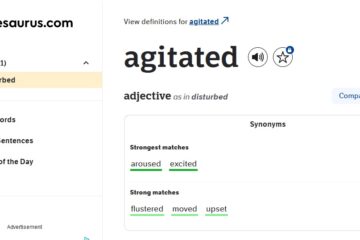Last month I wrote a guest post for agent Steve Laube’s blog, which he titled, “The Greatest Thing Since Sliced Bread?” The article didn’t have anything to do with bread. It was about the future of books, the changing nature of publishing and the new forms and formats that authors, if they’re smart, need to be thinking about.
I’ll return to this topic again and again, because I believe exactly what I said in today’s title: If we don’t change how we think about our books, they’ll die on the vine. Or wither away on the shelves, unnoticed.
Success isn’t a great mystery
Joel Friedlander of TheBookDesigner.com had a great article about what self-publishers can learn from the cable TV show “Restaurant Impossible”. He noticed that in each episode, the restaurant expert emphasizes the same formula for restaurant success (the list below is directly from his post):
- Good attentive service that upsells the customers
- Fresh, appealing food served attractively
- Clean and airy decor with focal points to brand the restaurant
- Marketing to local groups to introduce the new restaurant
Simple, right? Most of the time, the things that lead to success in any industry aren’t a big secret. And yet somehow the majority manage to miss the mark. Why is this?
People don’t want to change their minds.
We’ve been doing things our own way (or the way we were taught by someone else, or the way it’s been done for the past five decades) for so long, that doing anything different is extremely uncomfortable for a host of reasons. Inconvenience, fear of the unknown, the risk of trying something new, the turbulence and uncertainty of the new methods, or just not wanting to admit our way isn’t working. Pick one. Add your own reason to the list. The point is, if we’re not changing, we’re wrong. We’ll fail.
(Sorry, is this a little too strong for you? Feel free to find a blog to read that assures you that nothing is changing, everything is going to be okay, and that all this new-fangled digital stuff won’t really change the way publishing works. They’re out there. Try googling “ostrich” and “sand”.)
When it comes to selling books, we’re really looking at selling content. The content may be in the form of information (non-fiction) or entertainment (fiction). I’m simplifying this, but bear with me. To change our thinking, we must build on a solid new foundation.
Bouncing off the formula for successful restaurants, we could say that the formula for success with our content looks something like this:
- Thinking about the needs of our target market before we write
- Writing (and/or illustrations) of excellent quality and content (information or entertainment) that meets the needs of the audience
- Labeling and formatting the content so it’s easy for the audience to understand what’s inside and why your “book” is exactly what they’re looking for
- Getting the word out (marketing) to the people who already want or need exactly what you’re offering
When you have all those pieces in place, you can’t help it: success finds you.
The problem comes when we are unwilling to apply the principles of success and keep trying to do it our own way. The failure comes when we write whatever we want, without regards for whether anyone needs it. Failure comes when we decide to “become a writer” without investing any effort in becoming good at it or we throw a bunch of content onto our blog without stopping to edit it or learning to make our website easy to navigate.
Our content dies on the vine, unread, when we label it so poorly that nobody sees the value or withers away, unspread, when everybody who clicks on our title is disappointed because our content didn’t live up to their expectations. We fail when we do not bravely try new methods for getting good content, properly packaged, out to the people who really want it.
We thought we were doing everything right. We thought if we just kept doing the same thing and trying harder at it, then we’d break through to success.
But things have changed. And we need to change. Or the book dies.
What is a “Book”? What are we really selling?
In today’s publishing world, we’re not just talking about books and magazines anymore. There are e-books, blogs and e-zines, animated presentations and videos, audio books and a host of self-publishing options. When you start thinking about publishing a book, you need to be thinking about the best way to communicate your idea… and that may not be as a traditional hardcover or paperback book. Craig Mod put it eloquently in his article on “Post Artifact Books & Publishing”:
To think about the future of the book is to think about the future of all content.
Books have been around in their current form for so many decades (er, centuries) that we take them for granted. The printing press revolutionized communication in the Old World. The Internet is doing the same thing today. Here’s an essential and vital change of thinking you need to make to succeed in the New World of publishing:
The “book” (the physical pages printed with ink, all bound into a hand-held artifact) is NOT necessarily the best, most effective way to communicate your idea. The book artifact (the physical, printed item that became available with the advent of the printing press) was simply a huge improvement over traveling the country to spread your idea personally to individuals or groups who were willing to come and listen.
Stop thinking about books. Start thinking about your idea, your content.
Until you can divorce your content from the concept of the book artifact, you will be limiting your ability to succeed in the New World. Your goal is no longer “to publish my book”.
Your goal is to spread your idea. Share your content.
Share it with people who care. People whose lives will be impacted for the better by your content. People who will spread the word to others.
And, ideally, you’ll get paid for sharing your content in a way that makes the effort of sharing it worthwhile. More on that in future posts.
Take a moment and change your mind
I don’t know about you, but too many times I read a good idea and think, “I gotta remember this!” And an hour later my life has sucked me back into the same routines and I never think about it again.
Don’t let this happen to you.
The act of writing will cement an idea in your mind. Pick one thing that stands out to you in this article. Drop a comment below and tell me what it means to you, why it stood out. If possible, tell me what you’re going to do to implement a change of mind. Tell me what book idea you have that you want to rescue from death by changing your mind.
Referenced in this post:
- The Greatest Thing Since Sliced Bread?
- Post-Artifact Books and Publishing
- What Self-Publishers Can Learn From Restaurant Impossible





0 Comments